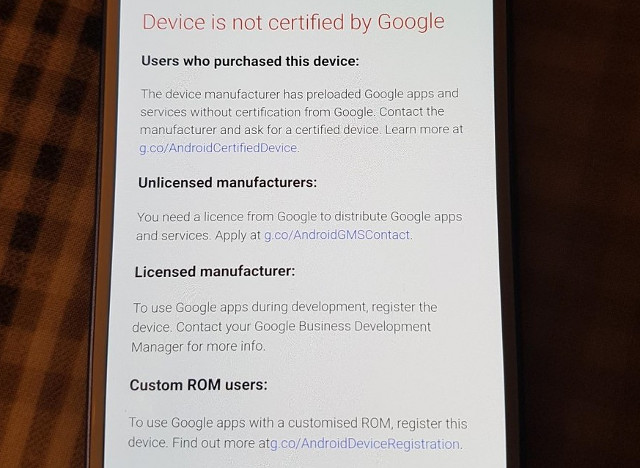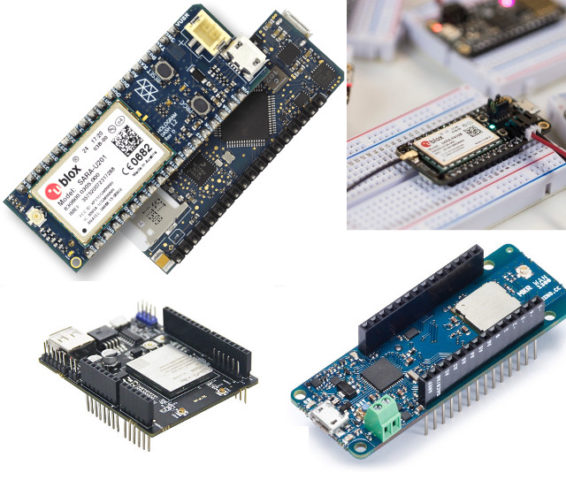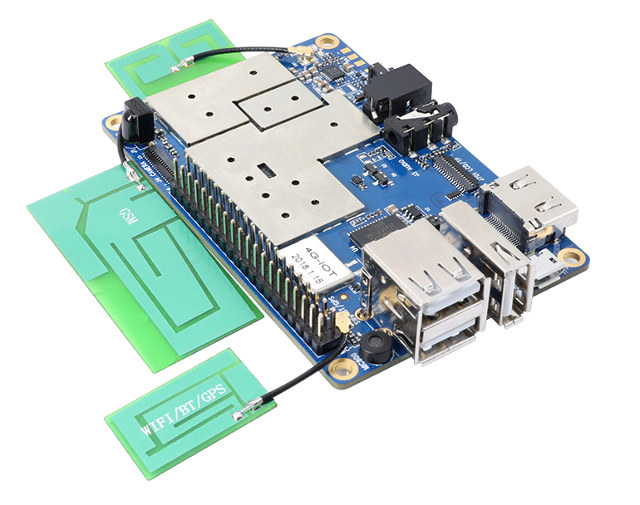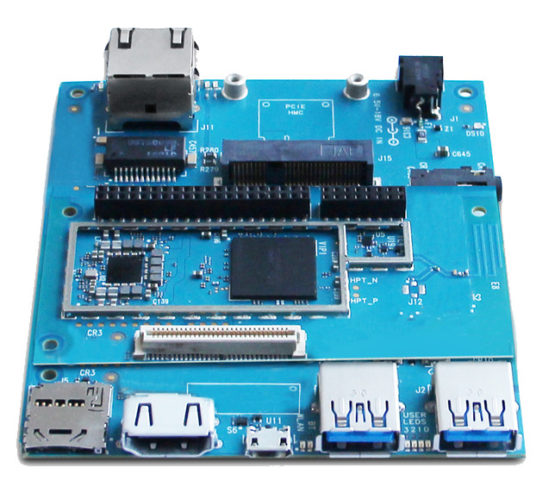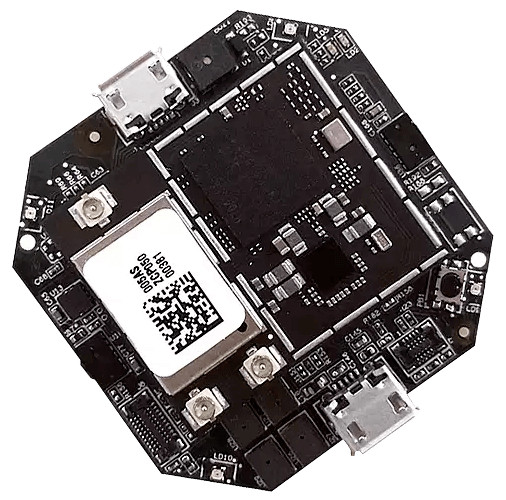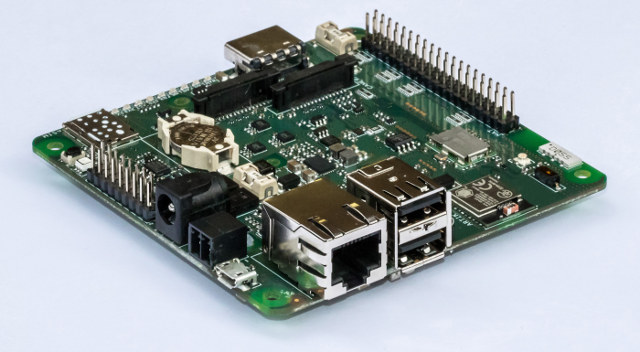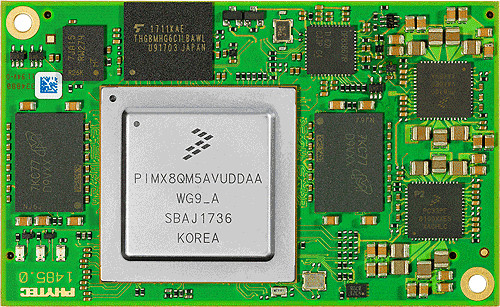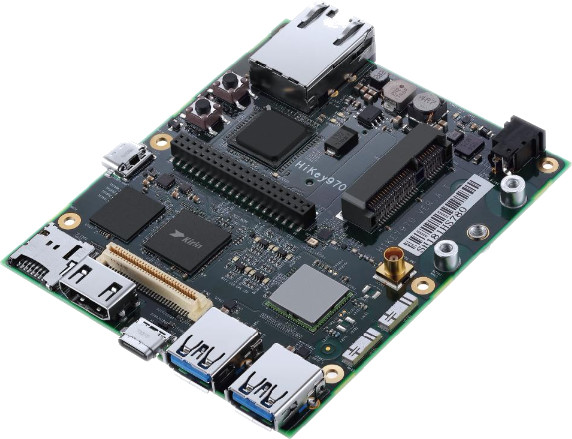Cheap TV boxes or development boards that can run Android, are not normally certified by Google, but you can still use Google Apps like the Google Play Store either directly with the manufacturer pre-loading the packages on the device, or manually by installing the packages yourself. According to a report by XDA developers, Google has made it harder to load Gapps on uncertified devices starting from March 16th, and if you try to login on a new custom firmware you may get the message “Device is not certified by Google” when accessing a Google app. The change will apparently only affect newly built firmware , so older firmware should still be able to access Google Play store (TBC). We’ll have to see how it turns out. Google Play Services is said to check ro.build.fingerprint for the build date, but it seems too easy to work around this, if that’s the […]
A List of Cellular IoT Development Boards
We’re starting to have a decent choice of cellular development boards, and as the number of products is getting larger having some sort of list would be useful. That’s exactly what Hologram has done. While the list is not quite exhaustive, they’ve pushed the CSV list to Github, and plans to update it. Hologram also encourages pull requests, so manufacturers may consider updating it with their own boards. The list focuses on development boards acting as cellular IoT endpoints, so you won’t find gateways, WiFi hotspots, end-user devices, and modules that needs to be soldered onto your own board. I have imported the list to WordPress to make it searchable, let people select the number of rows to display, and customize visible fields. The table is not automatically synchronized, so for the latest version always check out Github. Jean-Luc Aufranc (CNXSoft)Jean-Luc started CNX Software in 2010 as a part-time endeavor, […]
Orange Pi 4G-IoT Development Board Launched for $45
Last year, Shenzhen Xunlong Software launched Orange Pi 2G-IoT board for just $9.90. Pricing was incredibly aggressive for a cellular board, but AFAIK the RDA Micro processor used in the design had never been used with Linux so for many people using the board was a challenge (and maybe still is), and some countries have already started to sunset 2G networks. So it only made sense for the company to work on a 4G board, and that’s exactly what they have done with Orange Pi 4G-IoT now launched for $45 + shipping on Aliexpress. Orange Pi 4G-IoT specifications: SoC – Mediatek MT6737 quad core Cortex A53 processor @ 1.1/1.3 GHz with Arm Mali-T720MP1 GPU System Memory – 1GB DDR3 Storage – 8GB eMMC flash + micro SD slot Video Output – HDMI, LCD display interface with touch panel support Audio – 3.5mm earphone jack, built-in microphone Cellular Connectivity nano SIM […]
Qualcomm Snapdragon 820E based Geniatech Developer Board 8 Runs Debian, Follows 96Boards CE Extended Form Factor
Qualcomm Snapdragon 820E processor was recently launched a version of Snapdragon 820 without LTE modem, easier to source, and targeting the embedded market. The long expected DragonBoard 820c is the first board to feature the new processor, but Geniatech has also been working on their own Developer Board 8 that follows 96Boards CE Extended form factor, and is very similar to DragonBoard 820c. Developer Board 8 (DB8) specifications: SoC – Qualcomm Snapdragon 820E quad core Kryo processor up to 2.35 GHz with Adreno 530 GPU System Memory – 3 GB LPDDR4-1866 (PoP) Storage – 32 GB UFS Flash + micro SD 3.0 (UHS-I) slot Video Output – HDMI 2.0 up to 4K @ 60 Hz Audio – Via HDMI, 3.5mm audio jack Connectivity – Gigabit Ethernet, 802.11 b/g/n/ac WiFi, Bluetooth 4.2, GPS (TBC) USB – 2x USB 3.0 ports, 1x micro USB 2.0 device port Camera – Support for up […]
RushUp KITRA Board Family is based on Samsung Artik 020, Artik 520/530, or Artik 710 Modules
Samsung first announced their Artik IoT modules almost three years ago, and until recently most Artik related products or development kits came from Samsung themselves, with no third party involved. But this has started to change recently with announcements such a Seeed Studio Eagleye 530s low cost development board based on Artik 530 module, and Resin.io Project Fin combining RPI CM3L module with an Artik 020 module for low power Bluetooth connectivity. But as I flicked through Resin.io supported hardware, I discovered they also supported Linux powered Artik 520 and Artik1020 module, as well as some new “KITRA” boards I had never heard of, and if we visit RushUp company website, we can see they have a bunch of Kutra boards and one IoT gateway based on Artik modules: KITRA 520 – Samsung ARTIK 520 product accelerator for advanced IoT KITRA 710 – Samsung ARTIK 710 product accelerator for advanced multimedia […]
BalenaFin is an Industrial Carrier Board for Raspberry Pi CM3L Module Designed for Fleets of Connected Devices
[Update January 2019: Resin.io Project Fin has been renamed to BalenaFin, I have not changed the rest of the article] Resin.io is a both a company and a software platform that includes device, server, and client software to get code securely deployed to a fleet of devices. Devices are setup to run ResinOS, and to deploy you app, you just need to push the code to resin.io build servers, where it will be packaged into containers and delivered to your fleet of boards. So far, resin.io relied on existing hardware platforms like Raspberry Pi 3, BeagleBone Black, or Intel NUCs, but they’ve now decided to launch their first hardware with Project Fin that takes a Raspberry Pi Compute Module 3 Lite, is hardened for field deployment use cases, and adds some of most commonly requested hardware features such as variable supply voltage support, RTC, and cellular connectivity (via mPCIe card). […]
PHYTEC Introduces phyCORE SoMs & Devkits Based on NXP i.MX8, i.MX 8M, or i.MX 8X Processors
PHYTEC, an embedded systems company headquartered in Germany with global offices, has updated their phyCORE systems-on-module family with 3 sub-families of modules based on NXP i.MX 8, i.MX 8X, or i.MX 8M dual or quad core processors for a total of 9 modules. phyCORE-i.MX 8 Specifications: SoC – NXP i.MX 8Quad, i.MX 8QuadPlus or i.MX 8QuadMax Arm Cortex-A72/A53/M4F processor @ up to 1.6 GHz with Tensilica HiFi 4 DSP @ 666 MHz, 2x Vivante GC7000XSVX GPUs System Memory – 1 to 8GB LPDDR4 RAM Storage – 64MB to 256MB Octal SPI/DualSPI SPI NOR Flash, 4 GB to 128 GB eMMC flash, 4kB EEPROM Connectivity – 2x Gigabit Ethernet PHY 4x 120-pin Board-to-board connectors with: Display – 2x LVDS, 2x MIPI DSI, 1x HDMI Video Input / Camera – 1x HDMI, 2x MIPI CSI Audio – 2x ESAI, up to 4x SAI Networking – 2x 10/100/1000 Mbit/s Ethernet USB – 1x […]
96Boards Unveils Four A.I. Developer Platforms: HiKey 970, Ultra96, ROCK960 PRO & Enterprise Edition
Many new processors include a Neural Processing Unit (NPU) – aka Neural Network Accelerator (NNA) – in order to speed up talks associated with artificial intelligence, such as object or other patterns recognitions. With Linaro Connect Hong Kong 2018, 96Boards has just unveiled four development boards specifically designed for artificial intelligence solution with Hikey 970 powered by Hisilicon Kirin 970 processor, Ultra96 based on Xilinx Zynq UltraScale+ ZU3EG ARM+ FPGA SoC, and ROCK960 PRO & Enterprise Edition featuring the upcoming Rockchip RK3399Pro processor. Hikey 970 Preliminary specifications: SoC – Kirin 970 with 4x Cortex A73 @ 2.36GHz, 4x Cortex A53 @ 1.8GHz, Arm Mali G72-MP12 GPU, NPU with 256MAC/cycle @ 960MHz System Memory – 6GB 1866MHz, 4 Channel LPDDR4x Storage -64GB UFS storage, micro SD card slot Video Output – HDMI 1.4 up to 1080p60 Camera – 4 lanes CSI + 2 lanes CSI Connectivity – Gigabit Ethernet, wireless module, […]


